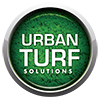Understanding Product Quality and Certifications
The quality of artificial grass is pivotal in determining its performance, durability, safety, and environmental impact. Evaluating product quality, however, can be a complex process given the variety of products and manufacturers in the market. Certifications provide a helpful tool to assess and compare the quality and safety of different artificial grass products. This article aims to guide you in understanding artificial grass product quality and the significance of various certifications.
Evaluating Product Quality
Several factors determine the quality of artificial grass. Here are a few aspects to consider:
Materials: High-quality artificial grass usually features yarns made of polyethylene, polypropylene, or nylon. These materials offer durability, softness, and UV resistance.
Construction: The way the grass blades are attached to the backing and the type of backing used can impact the product’s durability and performance. A quality product will typically have a strong, durable backing and secure tuft bind.
Density and Weight: A higher density (more stitches per square meter) and a greater face weight (weight of the grass blades per square meter) usually signify a higher quality product.
Colour and Design: Quality artificial grass should have a realistic look, with variations in colour and blade shape.
Warranty: A long-term warranty provided by the manufacturer can also be an indicator of product quality.
Importance of Certifications
Certifications can provide independent verification of a product’s quality, safety, and environmental impact. They set specific standards that products must meet and are awarded by recognised organisations after rigorous testing. Here are some common certifications you might encounter:
ISO 9001: This is an international standard for quality management systems. A manufacturer with ISO 9001 certification has demonstrated a commitment to providing a high-quality product that meets customer needs and regulatory requirements.
ISO 14001: This certification is related to environmental management. It shows that the manufacturer is committed to reducing negative environmental impacts.
LEAD Certification: This certification confirms that the artificial grass is lead-free, which is critical for ensuring the safety of users, especially children.
SGS Certification: SGS is a world-leading inspection and certification company. SGS certification for artificial grass verifies that the product has undergone rigorous testing and meets high safety, quality, and performance standards.
Sports Performance Certifications: If you’re installing a sports turf, look for certifications from sports governing bodies. For example, FIFA, World Rugby, and FIH each have their own certification programs for artificial sports turfs.
The Bottom Line
Understanding product quality and certifications is crucial when selecting artificial grass. By knowing what to look for, you can ensure that you choose a high-quality, safe, and durable product that meets your specific needs. It’s always a good idea to ask your supplier for detailed product specifications and certification documents to make an informed choice.
